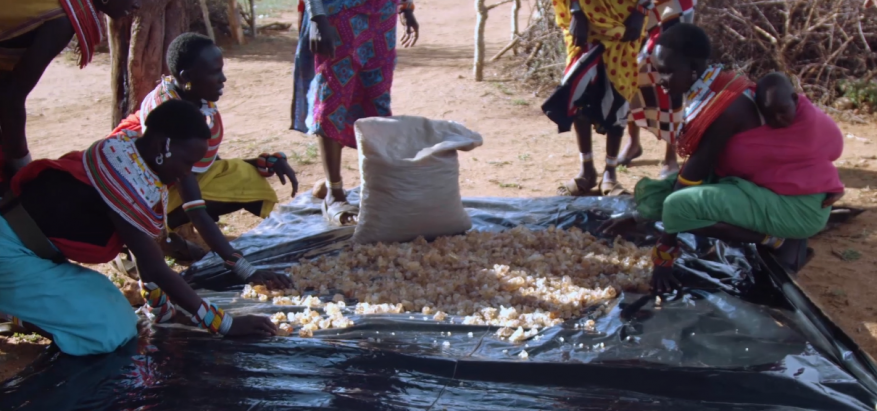A natural sap harvested from a tree species that grows wild in Africa’s plains is set to generate an income for thousands of poor households in Kenya’s remote arid lands.
A new market is being created for close to 7,000 families, including many who are semi-nomadic pastoralist communities, for Gum Arabic – a naturally occurring compound that is used as a supplement in a host of foods and beverages, and is also used in the production of inks, paints and ceramics.
Self Help Africa’s AgriFI Kenya Challenge Fund is providing financial support and technical assistance to Kenyan-owned Acacia EPZ, to enable the company to develop its business, purchasing, processing and exporting Gum Acacia to European markets.
The firm estimates that it will create a market for approximately 6,700 households in some of Kenya’s remotest and poorest regions, including Isiolo, Garissa, Marsabit, Samburu and Turkana, and will create over 60 new jobs across these regions.
The company is providing training and tools to local households who will be engaged in ‘gum tapping,’ and is to establish over 70 collection depots, which they intend can act as a ‘one stop shop’ where gum harvesters can deposit their produce, and at the same time purchase essential food, medical and farm supplies.
‘Gum tapping’ is an activity traditionally carried out by women, and provides a valuable new source of income for rural poor families, says Acacia EPZ founder Sam Nyamboga. “This venture also carries a strong environmental message, as it demonstrates to communities the value of the Acacia trees that grow in their midst, and discourages people from cutting down the trees for fuel.”
Kenya currently produces approximately 400 metric tonnes of Gum Arabic per annum, against a production potential calculated at 12,000 tonnes.
Acacia EPZ received funding support in the second round of awards provided by AgriFI Kenya Challenge Fund, which is an EU funded programme that provides funding support to develop the potential of the country’s agri-enterprise sector. AgriFI, which is also backed by Slovak Aid, is providing a total of over €18m in financial support to businesses, and is seeking to create more than 10,000 jobs, and linkages for more than 100,000 rural poor farmers and pastoralists in Kenya.
Within it’s brief the fund is supporting businesses in hard to reach areas of the country, where agri-enterprise and agricultural markets are less developed.

